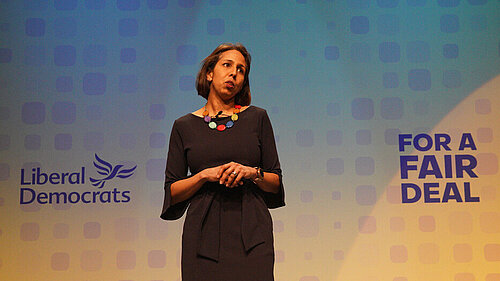Munira Wilson Keynote Speech

In her keynote speech at Autumn Conference in Bournemouth, Munira Wilson MP accused Rishi Sunak of letting down these children by “pulling the plug” on school-based tutoring. The National Tutoring Programme ends this year.
Analysis shows that more than one in seven teenagers fall behind with English or Maths at secondary school. These 64,000 students meet government reading and maths standards at age 11 but then fail either GCSE English or Maths at age 16.
She compares Sunak to Mr Bumble from Oliver Twist for consistently rejecting cries “for more” investment in education when he was Chancellor. Sunak rejected bids from Government advisers and officials for greater investment in COVID catch-up lessons, free school meals and new school buildings.
Instead, Liberal Democrats are calling for tutoring to become a permanent fixture in England’s schools. Schools, sixth forms and further education colleges would receive £390 million a year for intensive small-group sessions for students who have fallen behind in class.
Pupils would receive tailored support over 12 weeks in English, Maths, Science, or another academic subject. Schools and colleges would select pupils who receive tutoring, prioritising children from low-income backgrounds, with low prior attainment or with additional needs.
Schools and colleges could use their own teaching staff, recruit tutors themselves or choose from quality-assured external providers. Classroom teachers and parents would work together to identify the subjects where the tutoring is most needed.
A survey by Public First found that more than 7 in 10 parents whose children received tutoring at school said that it raised their child’s attainment. The Government’s ‘what works centre’ for education says that small-group tutoring boosts pupils’ progress by four months on average.